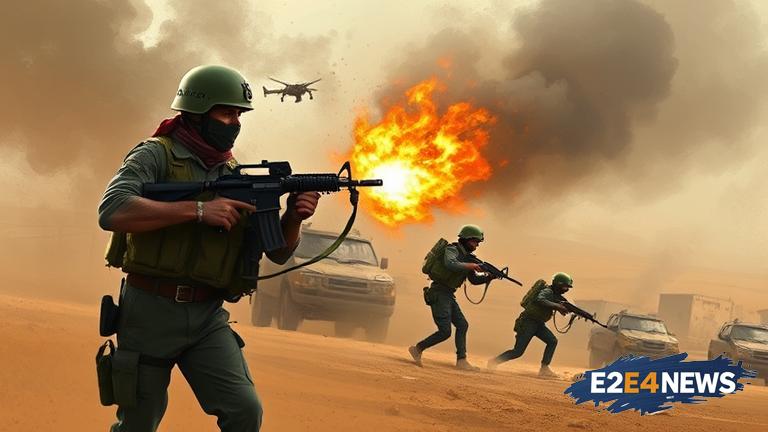The past month has seen a fragile ceasefire hold between Israel and Iranian-backed militias in the Middle East. Despite the relative calm, tensions remain high, and fears of renewed conflict are ever-present. The ceasefire, which was brokered by international parties, has been largely holding, but there have been reports of sporadic violence and skirmishes along the border. Iranian-backed militias, such as Hezbollah, have been accused of continuing to build up their military presence in the region, sparking concerns in Israel and among its allies. The Israeli military has been on high alert, with troops deployed along the border and air defenses at the ready. The situation is further complicated by the presence of other regional players, including Syria and Lebanon, which have their own interests and agendas. The United States and other Western powers have been working to support the ceasefire and reduce tensions, but their efforts have been hindered by the complex web of alliances and rivalries in the region. Meanwhile, the humanitarian situation in the region remains dire, with thousands of civilians caught in the crossfire and struggling to access basic necessities like food and shelter. The economic toll of the conflict has also been significant, with trade and commerce disrupted and infrastructure damaged. As the situation continues to unfold, diplomats and leaders from around the world are working to find a lasting solution to the conflict. However, the path forward is fraught with challenges, and the risk of renewed violence remains high. The international community is calling for calm and restraint, but the situation on the ground remains volatile. In the midst of this uncertainty, civilians are bearing the brunt of the conflict, and their needs must be prioritized. The conflict has also sparked a wider debate about the role of external powers in the region and the need for a comprehensive and sustainable peace agreement. As the region teeters on the brink of renewed conflict, the international community must come together to support a lasting peace and address the underlying issues driving the violence. The next month will be crucial in determining the trajectory of the conflict, and all parties must work together to avoid a return to violence. The world is watching with bated breath as the situation unfolds, and the consequences of failure could be catastrophic. In the end, a lasting peace will require a commitment to diplomacy, compromise, and the protection of human rights and dignity.
